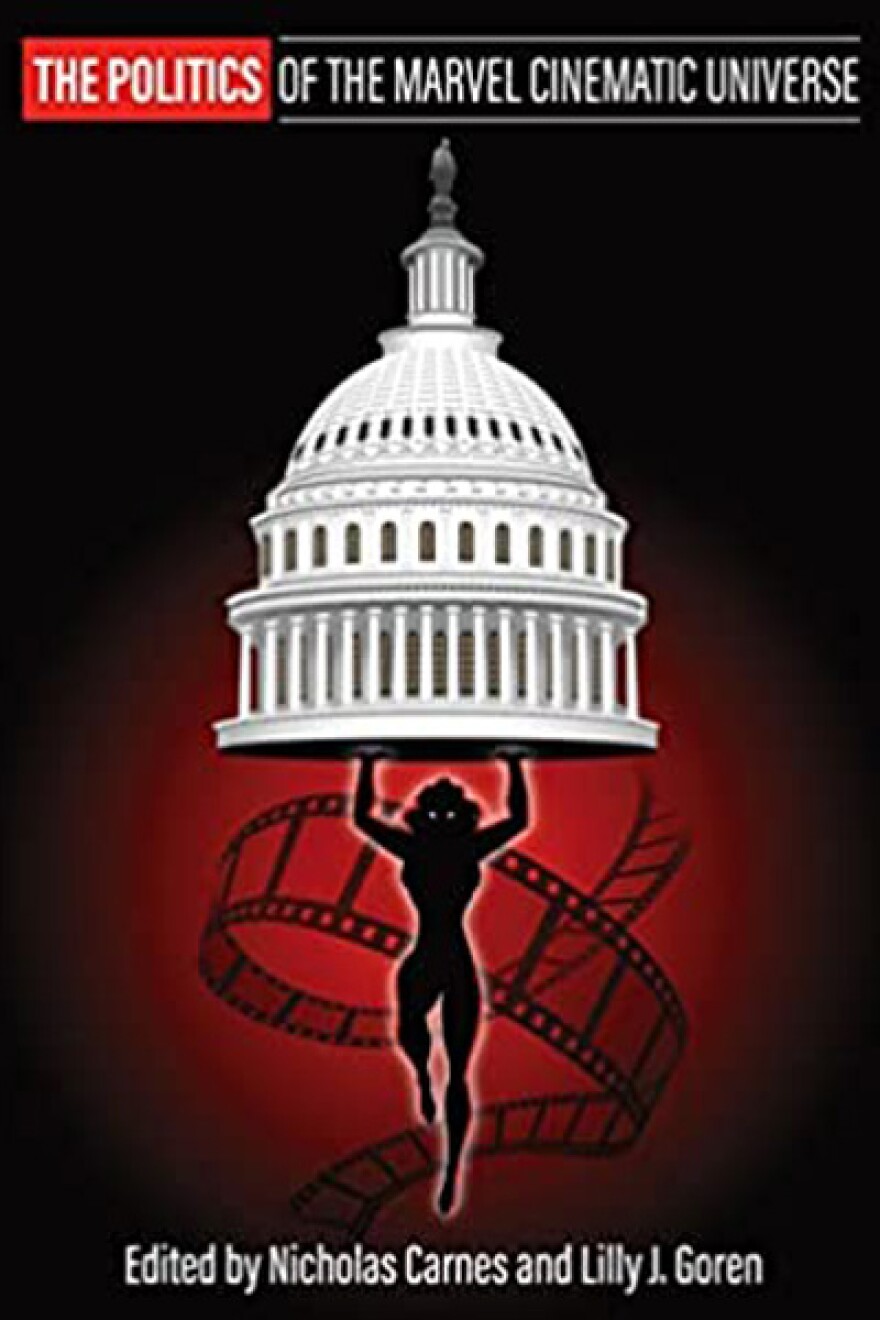Marvel movies have been dominating global screens for more than a decade. To date, of the 25 highest grossing films of all time, eight of them belong to the Marvel Cinematic Universe (MCU). These figures invoke questions of what do the films say about our culture and what are they teaching global audiences.
A new book, called The Politics of the Marvel Cinematic Universe, explores the cultural impact and, of course, the politics espoused in these films. Dr. Lilly Goren, a professor of political science at Carroll University, is an author and editor.
What interesting about the MCU, she says, is the financial impact that it has.
"The Marvel Cinematic Universe as an entity makes more money than about 35 countries in the world have gross domestic product," she says. "And so when you start thinking about ... a $300 million film to make, then it makes over a billion dollars in five days, those numbers are kind of interesting to explore in terms of impact."
These films communicate themes and narratives to masses of people in a matter of days.

A common narrative on display in Marvel films is a villain attempting to disrupt the typical and standard way of life. The hero then responds by thwarting the villain's efforts and preserving the status quo.
Goren says the politics of how the hero acts is particularly fascinating. "One of the issues with superheroes is that they're not elected ... and they operate, in a certain sense, in a political space because they're protecting a people or a nation or group in some way from some sort of threat. And so one of the issues around superheroes is that they are fundamentally vigilantes."
She says another interesting aspect of the MCU is the diversity of its patrons. "It was really, really fascinating to read that the tickets that are bought, particularly by the population in the United States, are African American ticket buyers. Both men and women ... and we're not talking just about Black Panther or Wakanda Forever, but all of the Marvel cinematic films like Thor and Iron Man and so forth that these have a real appeal to a diverse audience."
Though there's growing diversity in the MCU in terms of who is represented and involved in the films, Goren notes that there's an ongoing dialogue between Marvel and their fans about creating a more inclusive cinematic content that is more consistent with representation in the comics.
"But part of what superhero films generally do is exercise a kind of conservative approach. ... They very gingerly often times step forward into realms that may be more controversial. And so the question again of representation of LGBTQ characters has been really of quiet ... and this is something that fans have been asking for and fans have kind of been demanding and this is so prevalent in the comic books, but it hasn't quite been translated into big screen or even to the little screen," she says.
So stay tuned because there's more to come — Goren says a second volume of the book is being worked on.
_







